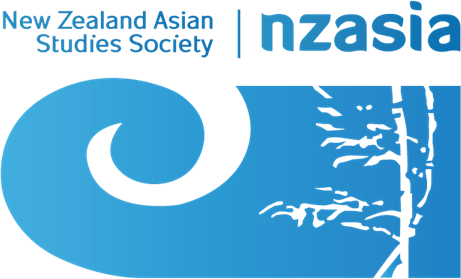Professional Development Series: "Ask the Editors: Publishing Your Book in Japanese Studies"2/12/2023 Editor's Note: This event will be held on Zoom at 1.00 PM on Saturday, December 9, 1.00 PM-2.30 PM.
From Modern Japan History Association Friday, December 8, 2023 | 7:00PM-8:30 PM ET | REGISTER FOR ZOOM Ask the Editors: Publishing Your Book in Japanese Studies Featured Panelists: William Masami Hammell, Senior Acquisitions Editor, University of Pittsburgh Press Masako Ikeda, Executive Editor, University of Hawai‘i Press Daniel Seungchurl Lee, Japan/Korea Editor, Harvard University Asia Center Publications Program Akiko Yamagata, Owner & Editor, Graphite Editing Panelists will offer advice and strategies for writing and publishing a book in Japanese studies, with an emphasis on aiming to publish in a peer-reviewed academic press.
0 Comments
It's the season for the Emerging Scholar Award hosted by the Australian Society for Asian Humanities! If you're eligible, plz submit your fantastic unpublished work to us. Click the link for details. We look forward to seeing many entries!
https://josah-publications.sydney.edu.au/emerging-scholars/ Power and Time
The Echoes of the Past, Reshaping the Present A cross-regional discussion on writing, representing and teaching the pasts 14 November 2023 Alan MacDiarmid Lecture Threatre (AMLT) 105 11.00 AM-4.30 PM Victoria University of Wellington--Te Herenga Waka Registration https://forms.office.com/pages/responsepage.aspx?id=Iz7mz1FpfkKGg7uE3PHSDBcjn75c80tOvwLZOhNJ3WlUOTJRUkk0NUlFRFpCNzEyVzYyMzBQNVZSWi4u The past should no longer be seen as ‘another country’. Whether it be the memory and history of colonialism,destruction, defeat or the struggle to redress social injustice,in recent years, we have been increasingly challenged byissues that have arisen from the fragments of our difficultpasts. Black Lives Matter in the US, Voice to the Parliament inAustralia, the controversies over the colonial statues inAotearoa and overseas, and the memory of colonial forcedlabourers in Japan are only small fractions of the broaderdiscussion about the pasts that live within us. In other words, itis timely to consider the different ways in which we seek tocome to terms with the presence of the pasts that haunt thephysical and mental alleyways of our present lives. In such aclimate, in this seminar, we aim to discuss and reflect deeplyon the ways in which we engage in historical studies and thevalue of thinking through our difficult pasts with twodistinguished historians, students, academics and othermembers of the community. Guest Lecturer 1 (11.10-12.00) Dr. Andrew Levidis (Lecturer in Modern Japanese History, Australian National University) The Temporal Lives of States: Archives and Empire in Japanese Historical Writing Discussants: Gilbert Levack (BA, Japanese/Linguistics) Emma Jolly (BA, Asia/Japanese) Guest Lecture 2 (12.30-13.20) Dr. Ann-Sophie Levidis (Lecturer in French, Australian National University) Past and Present Writings on the Francophone Pacific Discussant: Dr. Charles Rice-Davis (Lecturer in French) Postgraduate Panel 1 (13.30-14.20) Yuki Minami (PhD, Asia) “Who can forget this sorrow?/that resentment becomes a river”: Forgotten History of the Zainichi Student Volunteers Joshua Jeffrey (MA, Japanese) Play-ing with Satire: Okinawa and Haitian theatrical political satire in the 1970s and 80s Postgraduate Panel 2 (14.40-15.30) Courtney Powell (MA, History) Unstable Meanings: Interrogating Germanness in Sāmoa through Museum Objects Emma Johnson (MA, French) Reading power, reading French: Travelling texts in nineteenth-century Aotearoa NZ The Roundtable Discussion (15.40-16.30) Writing, Representing, and Teaching the Pasts Panellists: Dr. Arini Loader (Lecturer in Maori History) Dr. April Henderson (Senior Lecturer in Pacific Studies) Dr. Giacomo Litchner (Associate Professor of History and Film) Professor Yiyan Wang (Professor in Chinese) The Zoom option is available. So, please send me a request via email. For all enquiries, please contact me ([email protected]) As the largest gathering of experts working on Asia in the southern hemisphere, the 25th Biennial Asian Studies Association of Australia (ASAA) conference offers a unique platform for developing and discussing research ideas, broadening the scope and foci of area studies and related disciplines, and fostering the growth of academic and institutional networks. A regular feature of Australian scholarship since 1976, the ASAA conference brings together aspiring, emerging, and experienced scholars and practitioners to shape and inform future trajectories of Asian Studies in the country and beyond.
In partnership with ASAA, Curtin Faculty of Humanities and the Korea Research Centre of Western Australia at Curtin University, the 2024 Conference explores the theme of Asia Futures: Studies of, in and with Asia, with a specific focus on the Asian region and Asian Studies as the site of future possibilities, challenges, and interconnections. Participants are encouraged to examine and reflect on the vast potentials and uncertainties that lie ahead in what is now referred to as the “Asian Century” and engage with the complexities of the ever-evolving Asian region and its profound impact on the world. We encourage participants to reflect on their topics in the context of the field of Asian Studies, considering in particular how area studies approaches can intersect with other academic disciplines in addressing the pressing issues of the day, such as the rising tide of authoritarianism, flows of popular culture, gender and sexuality, or climate change and inequality. Proposals for panels and individual papers on other Asian Studies research areas are of course also welcome. The deadline for proposals is 30th October 2023. ASAA invites abstracts for papers, panels, and both physical and digital posters, as well as other contributions focusing on current and innovative themes in Asian Studies. We also welcome proposals for book launches and roundtable discussions. Please note that while both face to face and online proposals are welcome, panel proposals should be either entirely online or face to face as the conference will operate a separate online platform for online presentations. Online presenters will have access to all other online presentations, online poster materials, and keynotes, which will be streamed. KEY DATES Call for Papers Close October 30, 2023 Notification of Abstract Acceptance December 15, 2023 Registration Open December 15, 2023 Early Bird Registration Close February 1, 2024 Late Registrations Close for Presenters March 31, 2024 Please submit your proposal via the conference website: www.asaa2024.org Any questions and queries can be sent to the conference convenor Assoc/Prof Jo Elfving-Hwang ([email protected]). Paragraph. 編集するにはここをクリック. This day-long Symposium brings together leading experts from New Zealand, Japan, and the wider Indo-Pacific to discuss the region’s security challenges and how they can be managed. Speakers will address key themes including: security dynamics in a contested Indo-Pacific; Japan’s changing role in the region; New Zealand’s approach to Indo-Pacific security; and how developments are playing out in the South Pacific and Southeast Asia.
Confirmed Speakers: Dr Ken Jimbo (Keio University, Japan); Dr Akiko Fukushima (Tokyo Foundation, Japan) Dr Ian Storey (ISEAS, Singapore) Dr Huong Le Thu (Adjunct Fellow, CSIS, Washington) Dr Van Jackson (Victoria University of Wellington, NZ) AProf Manjeet S Pardesi (Victoria University of Wellington) AProf Nicholas Khoo (University of Otago, NZ) Dr Iati Iati (Victoria University of Wellington, NZ) Prof David Capie (Victoria University of Wellington, NZ) Dr Anna Powles (Massey University, NZ) Thomas Parks (Asia Foundation, Bangkok, Thailand) AProf Alexander Bukh (Victoria University of Wellington, NZ) REGISTRATION INCLUDES: Tea & coffee on arrival; morning & afternoon tea; and lunch . PROGRAMME OUTLINE 8:30- 9am Registration (tea & coffee on arrival) 9:00am Mihi Whakatau / Welcome / Keynote Address 9:30am PANEL ONE 10:45am Morning Tea 1:15 pm PANEL TWO 12:45pm Lunch 1:45pm PANEL THREE 3:00pm Afternoon Tea 3:15pm PANEL FOUR 4:45pm CLOSING REMARKS Reception to follow (5pm to 6pm) Drs. Caroline Bennett and Nayantara S. Appleton In 2021 we published an edited volume, Methods, Moments, and Ethnographic Spaces in Asia. Taking Kuan-Hsing Chen’s Asia as Method: Toward Deimperialization (2010) as a prompt, and drawing on ethnographic research from across the Asian continent, we aimed to address a dearth in the literature that positioned Asia as a centre – not only in relation to geopolitical and economic shifts, but also to methodological approaches.
The book launched while the COVID-19 crisis was still hitting hard and shaping our personal realities alongside the larger medico-political global shifts. Since the publication of the book in 2021, we have both moved across the world (although Nayantara returns to Aotearoa later this year). But in June this year, we met in Sri Lanka and re-visited the book together - wondering whether the points we had initially set out to address, starting in 2017 and culminating in 2020 when we send the book to publication, were still relevant. These conversations have prompted us to blog about the book for our larger NZASIA community and whanau, many of whom were involved in its writing. On re-visiting/re-reading the book, now two years on from its publication, the themes of the book seem acutely pertinent. Indeed, the COVID-19 pandemic illuminated and highlighted many of the geopolitical and social considerations highlighted by our authors – including the role of migration and movement (or its curtailing), the obscuring or highlighting of political landscapes, and the positioning of ourselves as researchers vis-à-vis the field. These conversations about research and research methods in changing Asian landscapes – in relation to other spaces in Asia itself – are as vital today as they were in 2021. The volume began as a conversation between two colleagues and friends about our respective work in Asia – Nayantara in India, and Caroline in Cambodia. As different authors came onboard it expanded to include thinking about subjects as wide ranging as mobility and verticality in the Western Pamirs (from Till Mostowlansky); infrastructure in Pakistan (Sarwat Viqar); psychiatric practice and positionality as a researcher-practitioner (are we translators, cartographers, or compradors?) (Jia-shin Chen); the complex relations of corporate retail of a Chinese researcher in a Japanese company in Hong Kong (Yi Zhu); how comparison provides linkages across Asia, Melanesia, and Oceania (Lorena Gibson); the evolution of Bali as place and product (Graeme Macrae and Lee Wilson); how multispecies ethnography of Japan from a Japanese family allows us to highlight that ‘we have always been cosmopolitan’ (Paul Hansen); and repositioning the self and the research vis-à-vis the relationality of women (including those from Bangladesh) in the borderlands of India and Nepal (Rimple Mehta and Sandali Thakur). Our own chapters consider the Asian experiences of feminist ethnography and participant movement (Nayantara) and the ongoing effects of the Cold War in Cambodia (Caroline). Thus, our authors, and the chapters in the volume as a whole, present a view on new renderings and imaginations of Asia from both within and outside the region – which in this new COVID-19 reality seem ever so pertinent. Each chapter offers personal reflection, and comes from long and ongoing wrestling with changing spaces and realities within our fieldsites as well as our disciplines. The linkages between these subjects were strong, despite them coming from across the huge geographical space and widely disparate social, economic, and political realities of Asia. And so, as part of the political project of this work, as well as a methodological interrogation, we also took a pan-Asian approach. At first, we received pushback from the publishing houses about this approach. Books sell better, they contended, if they have a regional focus, and Asia has longstanding subdivisions within which we might like to focus. However, this was a political project for us, as well as an invitation for new ways of thinking and positioning ourselves and the field. These subdivisions themselves were built in colonialism and hide the multiple ways Asia is and has been constructed across the centuries, including through religions (such as Buddhism or Islam), via trade along the (multiple) Silk Roads, or in geopolitical strategic focus. This pan-Asian approach is also fitting with Chen’s approach. Chen insists that ‘Asia as method’ is not a project of nation-states or subregions. There have always been multiple Asias, and Asia has had linkages and divisions across itself for centuries. But to see Asia in relation to Asia allows for the region to understand itself better in terms of its neighbours, as opposed to being in a peripheral relationship to Euro-American spaces and political projects. With all of this combined, the chapters in the book highlight the importance of Asia and the scholarship that emerges for/of/from this space, be it methodological, practical, or theoretical. For our readers, students and scholars alike, the book offers opportunities for seeing similarities across Asian spaces, points of differences, and areas of collaboration. But above all the chapters are beautiful ethnographic and personal narratives that invite us all to see Asia anew. Dr Alexander Brown (Independent Researcher) Editor's note: This is an obituary commemorating the life and work of Pepe Hasegawa, a renowned Japanese activist, contributed by his friend, Dr Alexander Brown, who has been a member of NZASIA since 2019. One of Hasegawa's key focuses, particularly after the triple disaster in 2011, was anti-nuclear activism whose historical connections with New Zealand , Australia and other Pacific nations since last century are worth recalling today.
Pepe Hasegawa (ぺぺ長谷川), born Tsukahara Katsu (塚原活), died 12 February 2023 of bile duct cancer. He will be remembered by the many activists and intellectuals in Tokyo and beyond who had the opportunity to know him, including many in the Japanese Studies community. Pepe was born in Greater Tokyo in 1966. He attended Waseda University in the 1980s and became involved in the university’s vibrant non-sectarian student movement. After 8 years at university, Pepe finally graduated in the 1990s, when Japan’s bubble economy burst. He refused to compete for a job in the cutthroat employment market of the time and instead pioneered a way of living outside the mainstream. Throughout his life, he made do with part-time jobs and advocated a simple lifestyle that allowed him maximum freedom for political struggle, personal development, and building relationships with others. In 1992 Pepe, together with his friend and fellow Waseda graduate Kaminaga Kōichi, formed the League of Good-for-Nothings (だめ連). The League was dedicated to exploring alternatives to the middle class Japanese ideal life course of a full-time job, marriage, and family. The League’s central practice was kōryū (交流 , interaction). They valued spending time with people to talk, build relationships, and share experiences. As a result, many people struggling with fitting in in Japanese society found a home in the group. Together they examined problems associated with the hikikomori or shut-in phenomenon, gender-based discrimination, mental health problems, and loneliness. In 1999 the League issued two edited books: Dame (No Good) (Kawade Shobō Shinsha) and Dame-ren Sengen (Manifesto of the League of Good-for-Nothings) (Sakuhinsha). This was followed by Pepe and Kaminaga’s co-authored Dame-ren no Hatarakanaide Ikiru niwa ?! (The League of Good-for-Nothings: Living Without Working?!) (Chikuma Shobō). With growing numbers of young people struggling to survive in the harsh new world of 1990s Japan, Pepe and the League briefly became something of a media phenomenon, appearing in magazines, newspapers, and on television. Pepe was an active participant in radical intellectual culture in Tokyo where he could often be seen at seminars on critical theory and social movements. In 1997 the League was featured in the ‘Street Culture’ issue of the monthly critical journal Gendai Shisō (Contemporary Thought).[1] However, his engagement with ideas took place less within conventional academic forums and more in the meetings and events organized through the League and in the social movements. The most detailed English-language study of the group’s theory and practice is in Carl Cassegård’s work on the renewal of youth movements in Japan in the new millennium.[2] As Cassegård explains, the work of Pepe and the League helped lay the groundwork for subsequent protest movements against the Iraq war in 2003 and the freeter movement in the mid-2000s. Following the Fukushima nuclear disaster, the League was at the forefront of the Genpatsu Yamero movement that saw tens of thousands demonstrating against nuclear power in the streets of Tokyo.[3] Pepe continued his political work with Kaminaga and the League right up to the end of his life, through semi-regular broadcasts on Youtube under the title Dame-ren Terebi “Atsuku Revoryūshon! (League of Good-for-Nothings Television: Passionate Revolution) and at frequent events. They discussed a wide range of themes, both political and deeply personal. The power of the League’s practice was in finding connections between the two. Pepe had a beautiful voice and was well known in the activist community in Tokyo for his love of karaoke. Over the past ten years, he performed regularly as a vocalist with the guitarist and singer-songwriter Robaato de Piiko (link: https://robert-de-peaco.bandcamp.com/releases). This performance of the group’s song Kakubakudan wa iranee (We don’t need no nuclear bombs) (link: https://youtu.be/C9pvVJ6ryYY) forms a fitting tribute to Pepe’s life. Vale Pepe Hasegawa 交流無限大! Kōryū Without End! [1] Ukai Satoshi, Ogura Mushitarō, Kaminaga Kōichi, Pepe Hasegawa, ‘Dame-Ren Wa Nani o Mezasu Ka?’, Gendai Shisō 25, no. 5 (1997): 304–13; Kaminaga Kōichi, ‘Dame-Ren Sengen’, Gendai Shisō 25, no. 5 (1997): 314–25. [2] Carl Cassegård, Youth Movements, Trauma and Alternative Space in Contemporary Japan (Leiden: Global Oriental, 2014), 57–67. [3] Alexander Brown, Anti-nuclear Protest in Post-Fukushima Tokyo: Power Struggles (London: Routledge, 2018), 88. Dr Chia-rong Wu (Associate Professor, University of Canterbury) Dear colleagues,
I am thrilled to announce that my co-edited volume Taiwan Literature in the 21st Century: A Critical Reader has been published by Springer. This anthology involves wide-ranging topics, such as the rewriting of Taiwanese history, human rights, political and social transitions, post-nativism, Indigenous consciousness, science fiction, ecocriticism, gender and queer studies, and localization and globalization. The goal is to rethink these existing topics and further explore innovative takes on Taiwan literature in the contemporary era. If you are interested, please check out the book via the link below. https://link.springer.com/book/10.1007/978-981-19-8380-1 Sincerely, Chia-rong Wu, Associate Professor, University of Canterbury, New Zealand |
The views expressed in these blogs are not those of the NZASIA Executive and reflect the personal views of the blog authors.
Archives
December 2023
Categories |

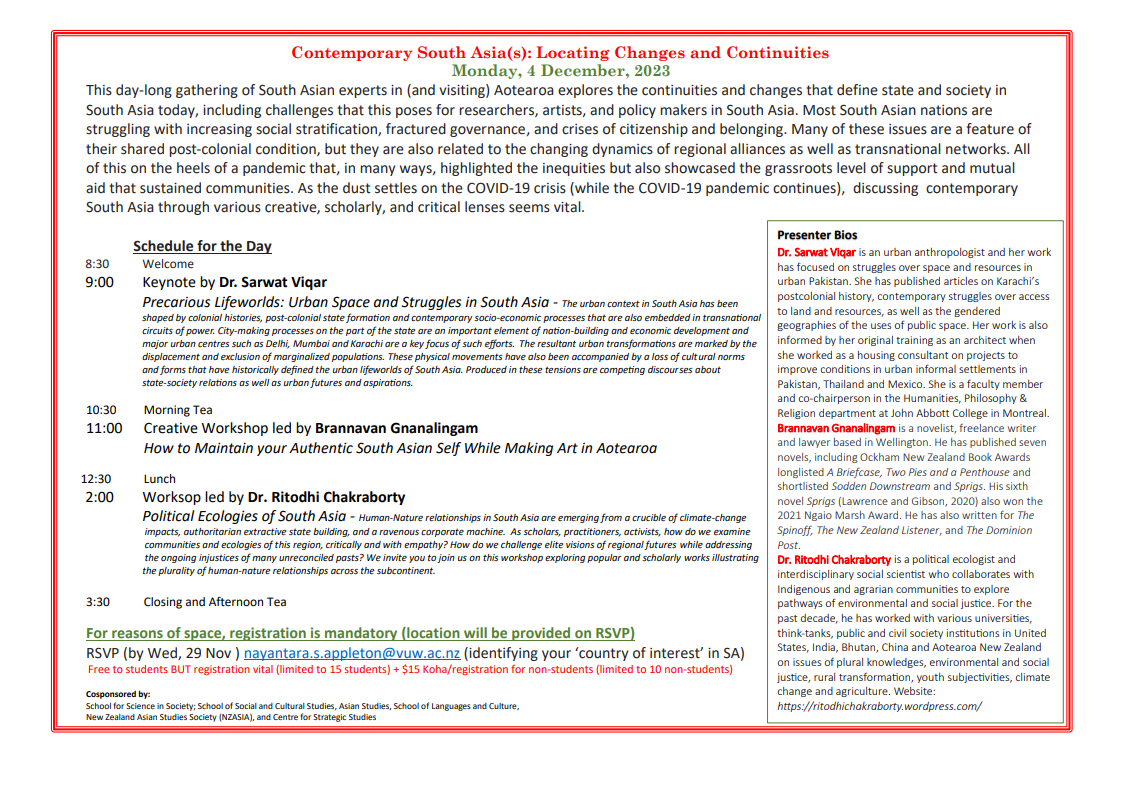
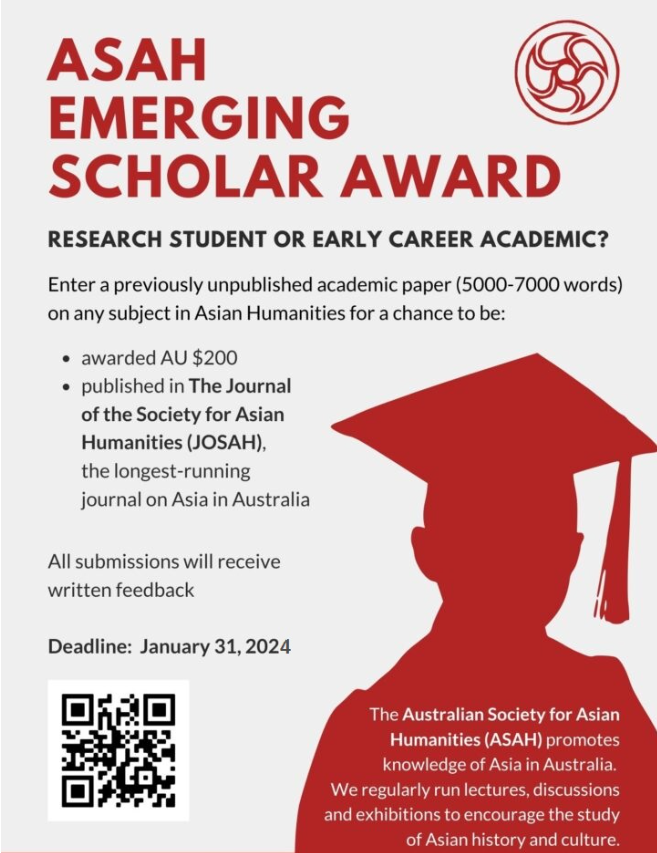
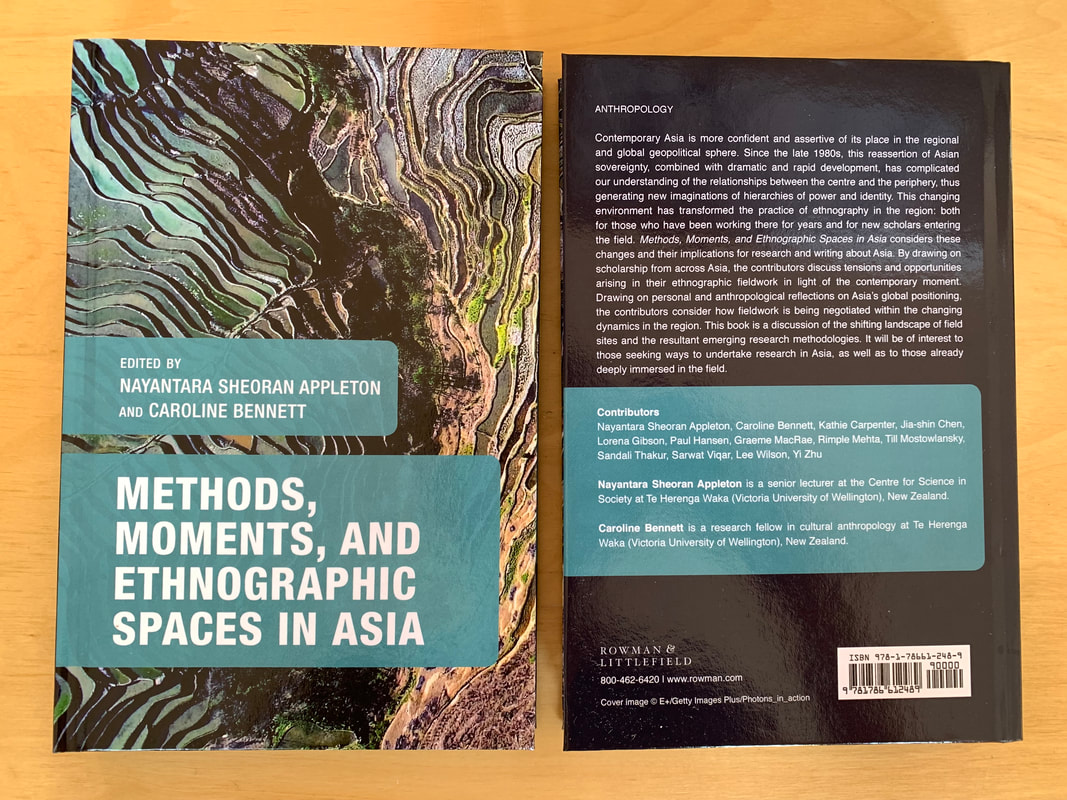
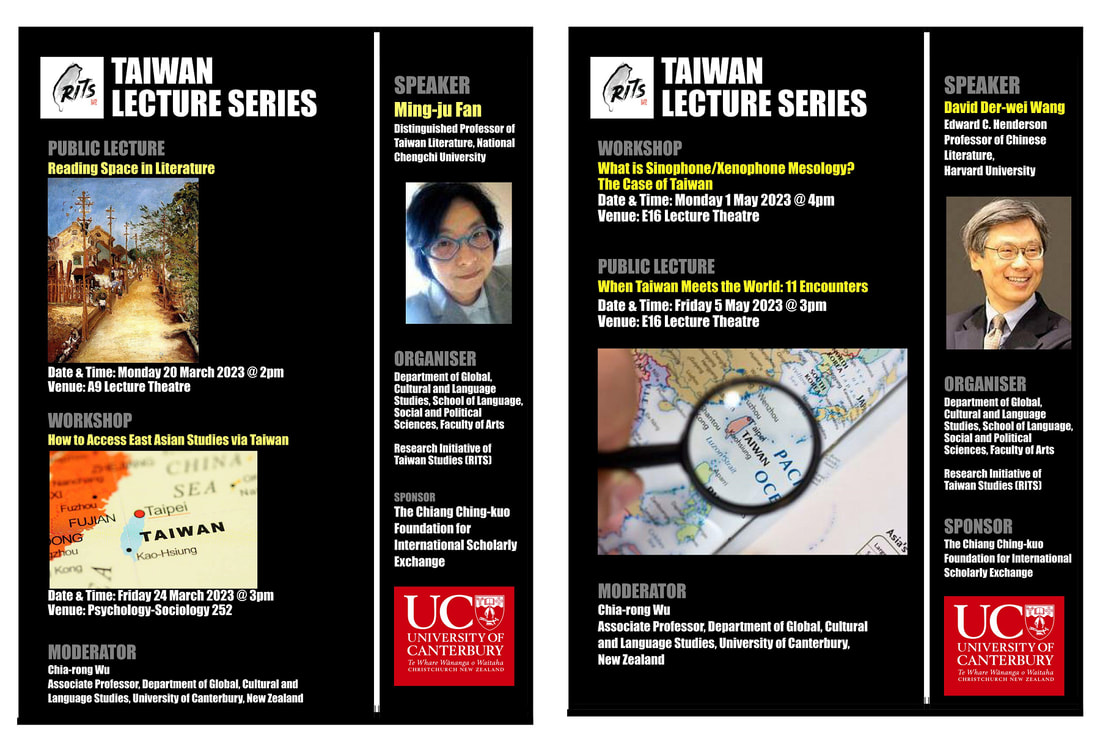
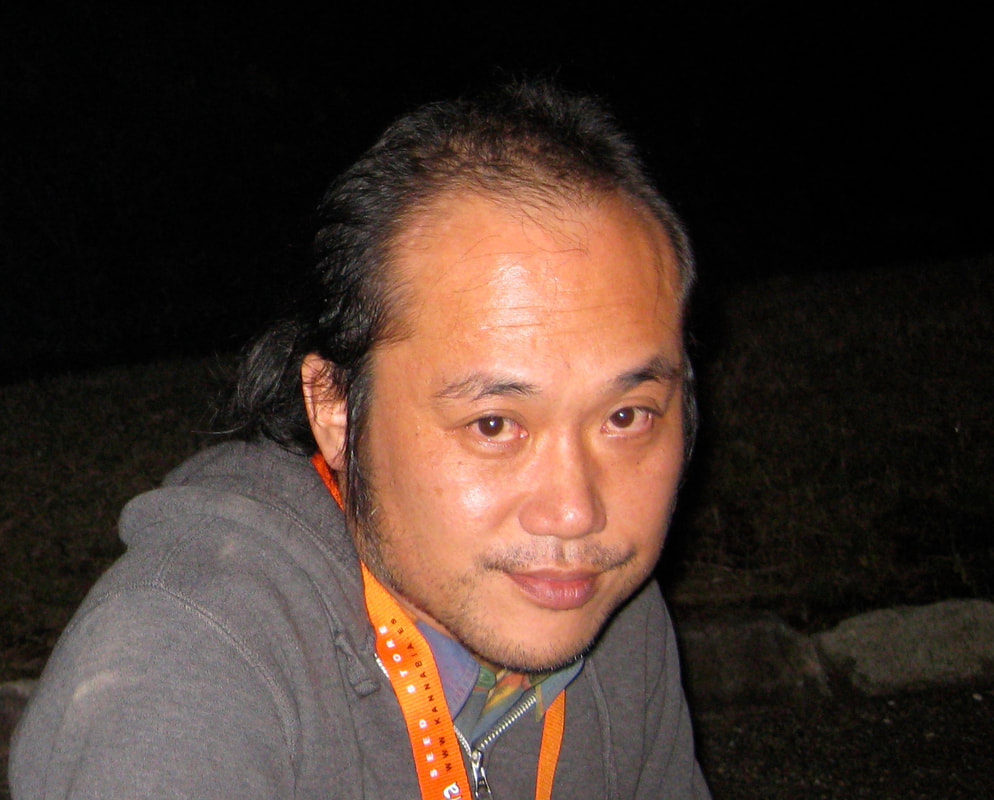
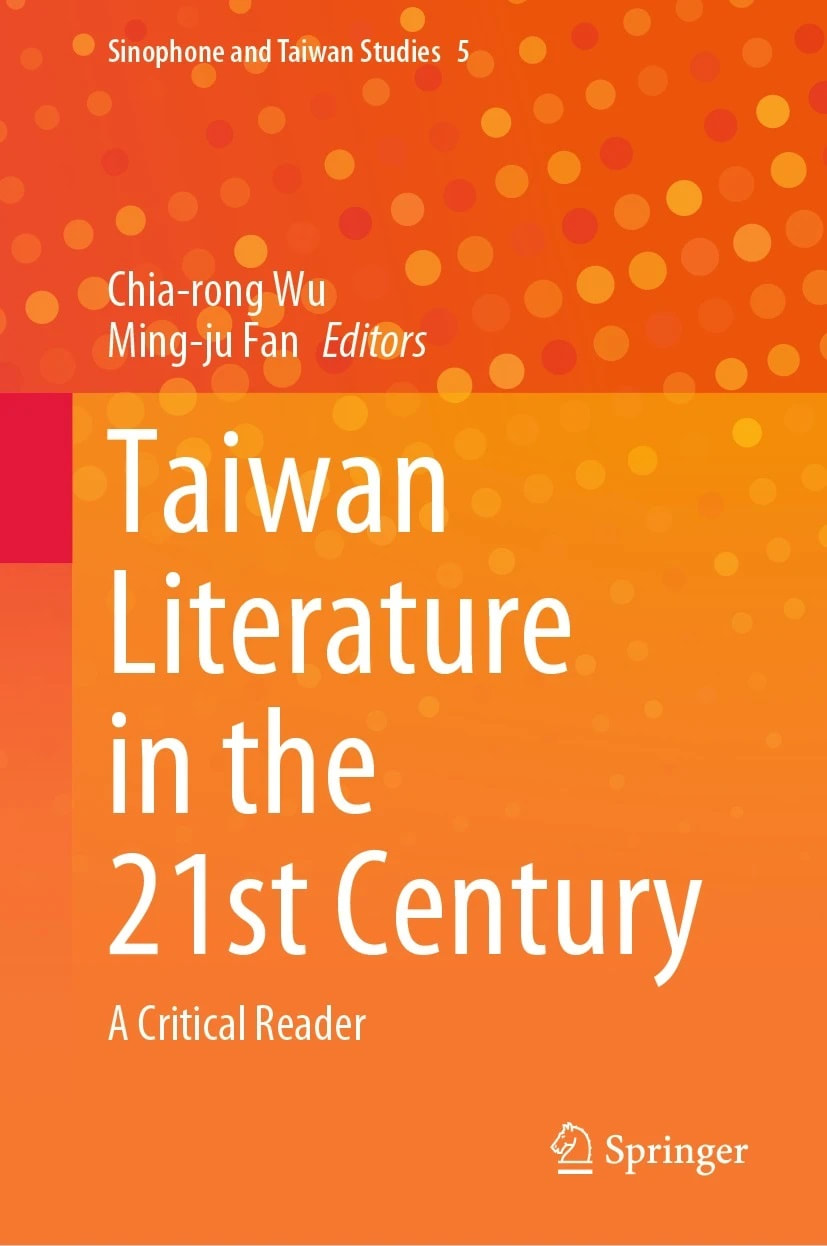
 RSS Feed
RSS Feed
